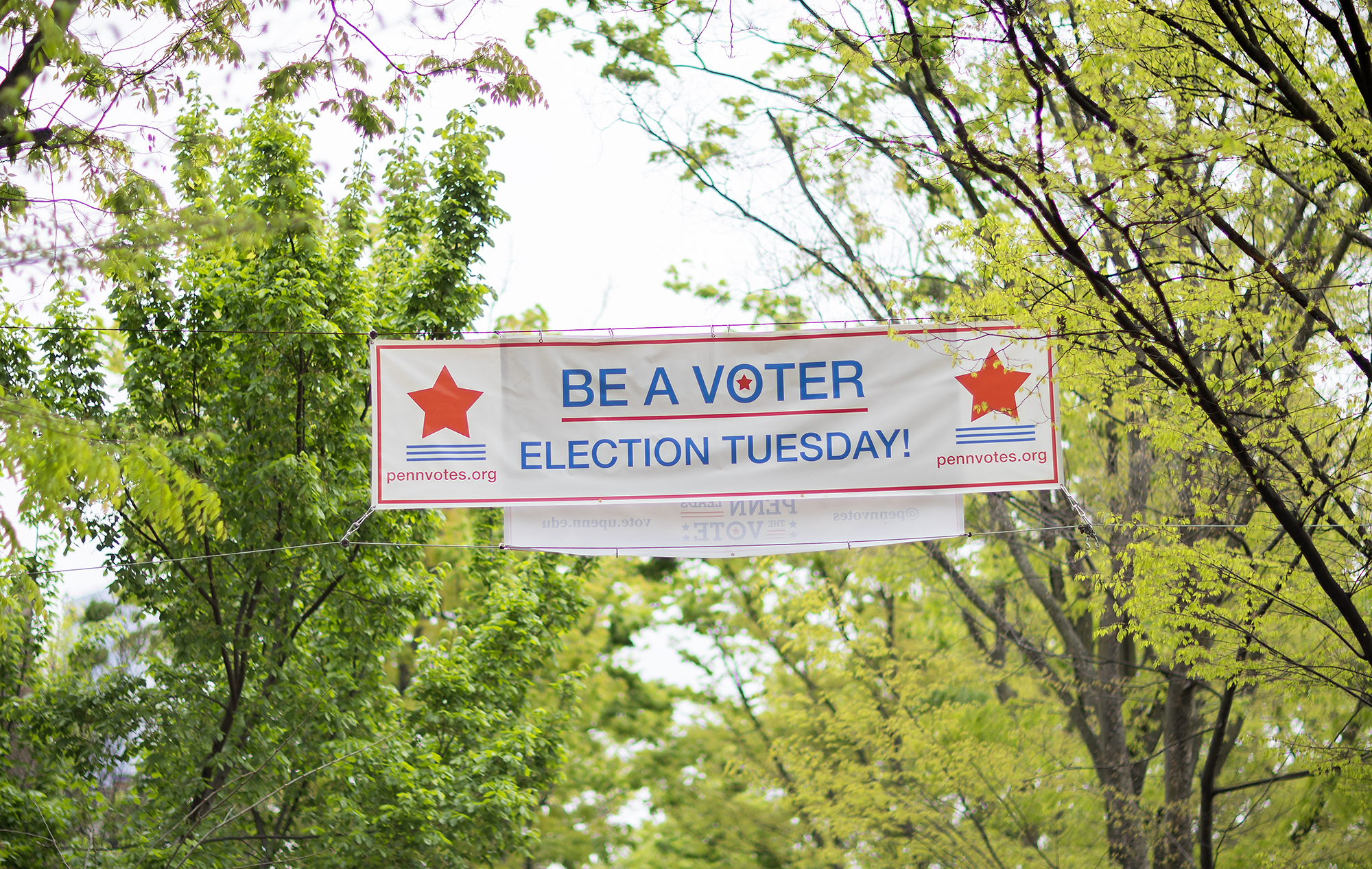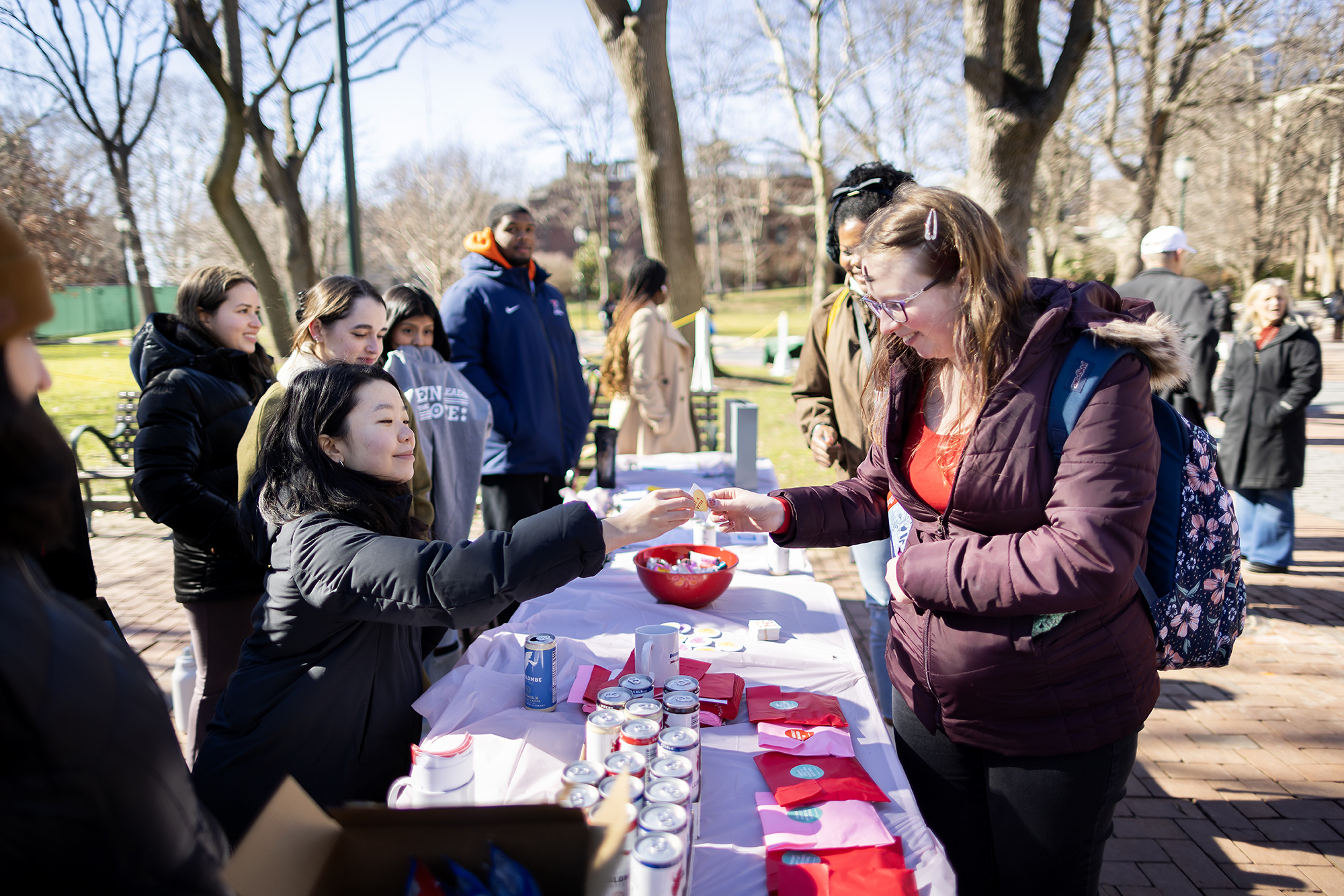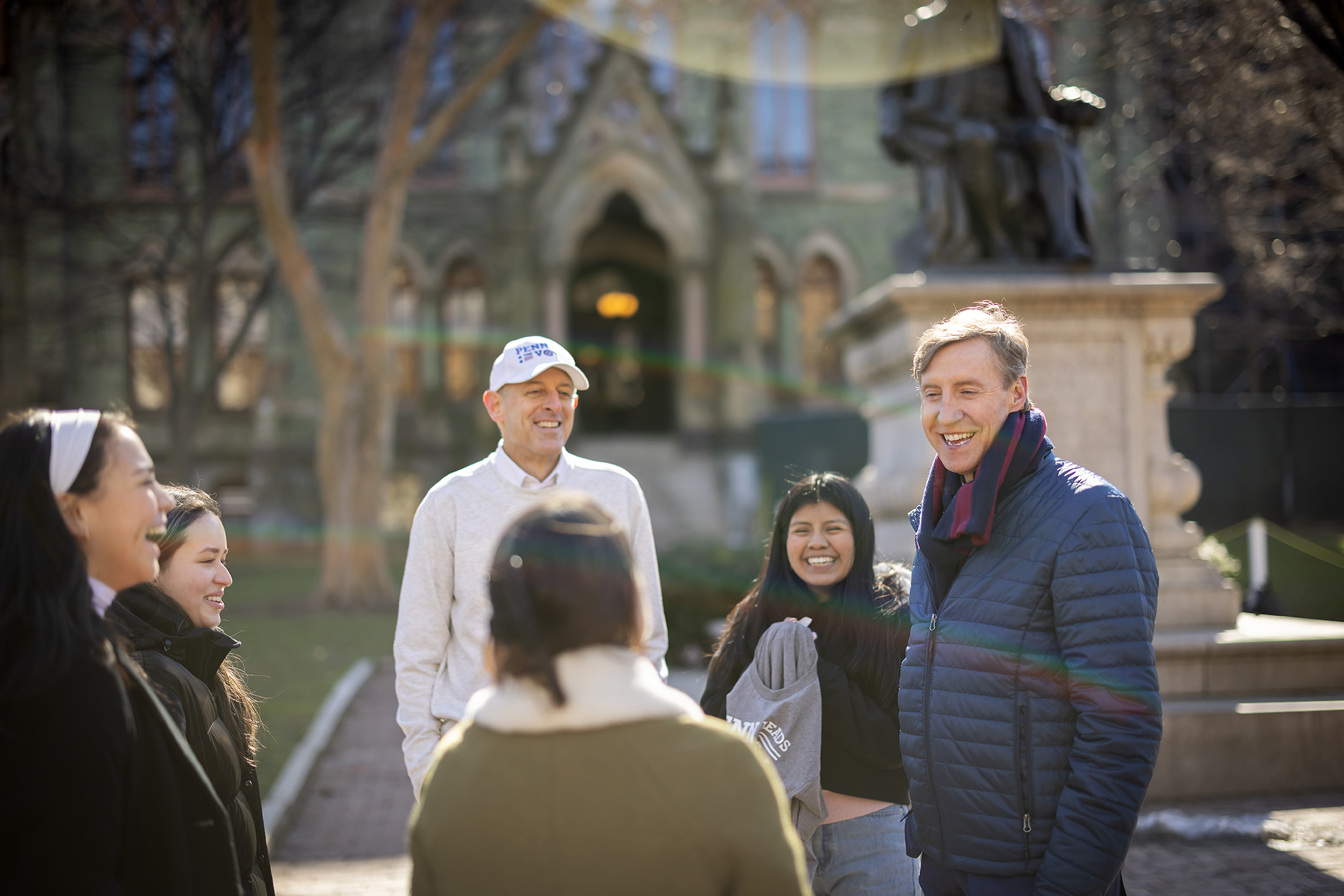
Three out of every four years, Penn students depart campus before Pennsylvania’s primary election day arrives, often the day after Commencement. This year, however, student voters will be on campus to cast ballots when polls open at 7 a.m. on Tuesday, April 23.
Penn Leads the Vote (PLTV) wants the Penn community to know about it—and spread the word.
“Our biggest goal is to see a culture of civic engagement on Penn’s campus, to have as high as possible a rate of turnout and set a precedent within our university and comparable universities of being able to be engaged and, essentially, lead the vote,” says Sarah Alkhafaji, a senior political science major from Boston who is co-director of PLTV alongside junior Alyssa Antonian.
PLTV happens to be very good at this task: The team of 60 was recognized by the Washington, D.C.-based nonprofit ALL IN for Campus Democracy Challenge as a group at one of 70 universities with a “Highly Established Action Plan.” They have also been honored in previous years for outpacing peers in student voter engagement. PLTV is currently putting finishing touches on their newest action plan for the general election in the fall.
“We have a long game in mind for the fall and in terms of the next few years, even,” says Alkhafaji, who began volunteering with PLTV in her sophomore year, in 2021. “And we want to be as involved with as many portions of campus as possible, strengthening partnerships with college houses, graduate and undergraduate schools, and have partnerships nailed down [by fall].”
The strategy of partnering with campus organizations has been a relatively new one for PLTV. It is partly born out of an effort by Alkhafaji to work in previous years with cultural centers on campus.
Cory Bowman, associate director of the Netter Center for Community Partnerships and advisor for PLTV, calls the collaborative approach “reverse doorknocking.” In essence, PLTV volunteers team with the many organizations on campus—ranging from Athletics to the Undergraduate Assembly—to disseminate voting information through social media and email lists, as well as establish early in the academic year that Penn has a culture of voting and supports PLTV as a nonpartisan resource through which they can access voting information. New Student Orientation, for example, includes a QR code leading to vote.upenn.edu in a welcome packet.
“They have a lot of creative ideas and they’re really poised to be a model for how a student organization can do both direct outreach and ‘reverse doorknocking,’ and I think that will be a precedent for other institutions,” says Bowman.
For the primary, PLTV has registered voters throughout the spring semester, leading up to the April 8 deadline for the Pennsylvania primary—hosting events like “Love Your Vote” in February, with a special appearance from Interim President J. Larry Jameson, and a series of tabling events at college houses and dining halls to reach voters directly. Since the registration deadline, they’ve worked to educate voters about mail-in ballots, where to vote, and eligibility to vote based on party registration. (Pennsylvania has a closed primary system, meaning people who are unaffiliated or are registered with a third party can only vote on ballot questions.)
“Part of this work is knowing that the laws and rules and everything around voting can change,” says Dawn Deitch, executive director of Penn’s Office of Government & Community Affairs (OGCA). “They aren’t static. And they change a lot lately, so I’ll say a ‘three cheers’ for the work PLTV has done with voter education to help with exactly that.”
She adds that PLTV establishes “great standards” for OGCA’s own work engaging the rest of the campus community, like helping Penn staff stay informed and keep their voter registrations current at campus events like the Penn Professional Staff Assembly Employee Resource Fair.
The short-term goal for PLTV is to turn out the vote for the primary, which features not just a presidential race, but a series of federal and state office choices that includes the Pennsylvania attorney general race—one that’s often decided by a slim margin. There is also a proposed change to the Philadelphia Home Rule Charter.
Beyond the get-out-the-vote work for the primary, however, is a much longer term, deeper goal: Making voting feel more like a reflex.
“The PLTV mantra is ‘Every spring, every fall, every year,’” says Bowman. “It’s about building that culture of voting here in Pennsylvania.”
Polls in Pennsylvania are open from 7 a.m. to 8 p.m. on Tuesday, April 23. Registered voters can locate their polling place through the Pennsylvania Department of State. Those who have filled out mail-in ballots should return them by 8 p.m. on April 23 to a mail-in drop-off location and not their local polling place.









